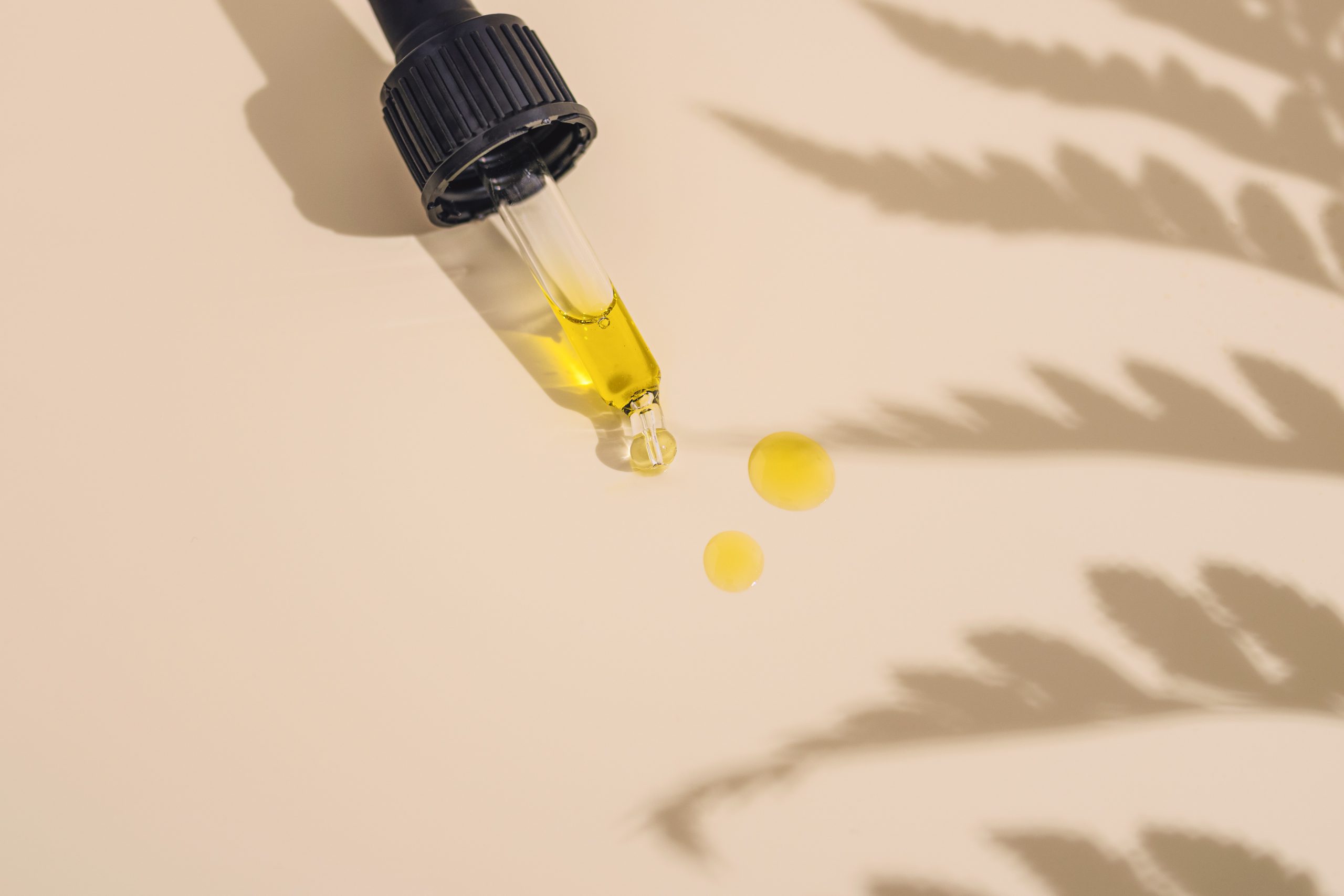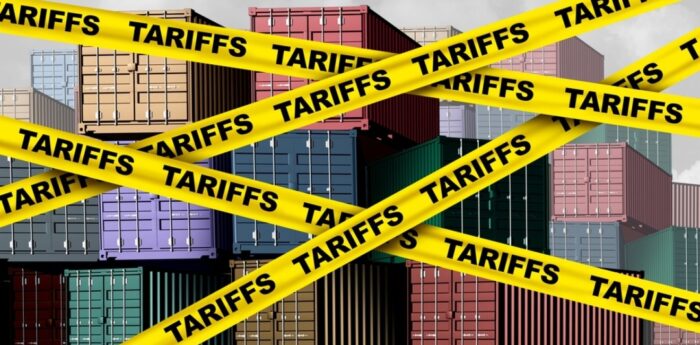
Pharmacies, health food stores, and even grocery stores are now stocking products that contain CBD. What is this chemical, and why would the products that contain it need kosher certification?
What is CBD, and what differentiates it from marijuana?
CBD is short for cannabidiol, a chemical compound found in industrial hemp. It’s an entirely different compound than THC (tetrahydrocannabinol), the psychoactive compound in marijuana that produces a sensation of euphoria.
The industry has developed ways to produce CBD from both hemp and marijuana, which are two different strains of the Cannabis sativa plant.[i] However, unlike THC, CBD is not psychoactive. This is true of both hemp-derived and marijuana-derived CBD. Further, CBD has been legal in all 50 states since 2018 (as compared to just 17 stated for marijuana, at the time of this publishing).
Although neither clinical studies nor the FDA have approved or corroborated the anecdotal evidence, users of CBD claim that it can act as an anti-inflammatory agent, reduce pain, and mitigate anxiety, among other things. [ii]
What kinds of products contain CBD?
From topical solutions to edible oils, candies, and capsules, CBD is available in an array of delivery mechanisms for both human and animal use. Gummies are a particularly popular CBD-containing product. CBD is available for industrial use as an isolate, a distillate, and in water soluble powder and liquid forms. Smokable CBD flowers, available as the raw, dried flowers or in pre-rolled cigarettes, are also on the market. They may look like marijuana, but they are industrial hemp – a different plant that is not psychoactive and will not produce feelings of being “high.”
Edible CBD products include mints, gum, the aforementioned gummies, chocolates, oils, tinctures, hard candies, chewy and caramel candies, infused honey, soft drinks, alcoholic drinks, toothpicks, cookies, and drink mixes (flavored powders and fizzing tablets).
Is CBD kosher?
The chemical compound itself, as it occurs in the hemp plant, is kosher by default and is considered Pareve (neutral – neither meat nor dairy). However, once isolated from the plant, it loses its inherent kosher status. Therefore, in order to consider and market CBD as kosher, it requires proper kosher certification. The CBD extraction process usually requires the use of solvents, (such as ethanol) which may require kosher certification as well. (Solvent-less extraction processes have been developed, but solvents are still in wide use.) The processing can yield distillates and isolates in either liquid or powdered form. The kosher certification process ensures that both the extraction process and the equipment itself is free of any non-kosher substances.
CBD edibles need to be kosher certified to make certain that all of their ingredients are kosher. The machinery that they’re produced on also need to be verified to be kosher.
Why would a CBD product company consider kosher certification?
Consumer confidence is the number one reason why CBD product companies should consider kosher certification. Most consumers see a kosher symbol as a quality stamp, ensuring purity, or transparency. CBD is not regulated by the FDA, and “there are many unanswered questions about the science, safety, and quality of products containing CBD.”[iii] While kosher certification is not a substitute for clinical studies and FDA regulation, it does offer consumers a measure of assurance that their CBD product has undergone some level of regulatory supervision.
Kosher Certification of CBD Products Offers Brand Recognition
Being a relatively new and underregulated industry, the manufacturing end of CBD production is often opaque. There are so many CBD products on the market that it’s tough for consumers to identify the “safer” options. Since 2018, the market has been flooded with CBD products. Therefore, an uninformed consumer can’t depend on brand recognition as a guideline for choosing the purest product.
41% of America’s packaged food products bear kosher symbols,[iv] and “kosher-certified foods sell 20% better than competing non-kosher brands.”[v] The American public is quite used to seeing familiar kosher symbols and depends on them for quality assurance — a guarantee of third-party supervision during the manufacturing process. The OK symbol is instantly recognizable to consumers, and is placed on thousands of products. With a legacy of over 85 years of the highest kosher supervision standards, the symbol also inspires consumer trust. While a consumer might be unfamiliar with a particular CBD company, they’re likely to recognize the OK symbol on the label.
While a consumer might be unfamiliar with a particular CBD company, they’re likely to recognize the OK symbol on the label.
Vegetarian, Vegan, and Plant-Based Consumers Want Kosher
CBD edibles present a challenge to the vegetarian, vegan, or plant-based consumer – and there are a lot of these consumers. What used to be a niche market is now mainstream. “U.S. retail sales of plant-based foods grew 11.4 percent in the past year. That brings the total plant-based market value to $5 billion.”[vi] Vegetarian, vegan, plant-based, and dairy-free consumers have long looked to kosher symbols as evidence that a product is Pareve (containing no meat or dairy products).
Certification that a product is Pareve is also useful to those with allergies to dairy. CBD chocolates, caramels, cookies, and other treats all have the potential to contain dairy products. Certification that the product is Pareve offers the dairy-free consumer buying confidence and an opportunity for brand loyalty. Of course, OK offers dairy certification as well, should a company choose to produce edible CBD products that contain dairy.
Sources of Gelling Agents in CBD Gummies
“Gummies are the undisputed champions of edible cannabis, with sales that dwarf all other category form factors. According to dispensary sales analysis firm Headset, gummies accounted for $602 million in sales through the first nine months of 2021.”
Hemp Industry Daily
Manufacturers of CBD gummies generally choose between gelatin and pectin as gelling agents. Pectin is vegan (contains no animal products at all) – it comes from the cell walls of fruits and vegetables. A common use is as the gelling agent in jelly and jam, as well as in vegan gummy candies. Gelatin, on the other hand, comes from the collagen in animal bones, connective tissue, and skin. The most common source of gelatin in industrial food production is pigs.
This poses a problem for kosher, halal, vegetarian, and vegan consumers. Kosher sources of gelatin include fish and beef. Although bovine gelatin is Pareve in Kosher law, fish based gelatin does pose an allergen risk to some. For this reason, OK Kosher encourages certified companies using fish ingredients to print the OK-F designation on the packaging. This enhanced level of transparency offers consumers more confidence that their CBD gummies match their religious, moral, or health choices.
What about kosher marijuana?
At the time of this publication, marijuana and THC-containing products are legal for recreational use in 17 US states. They’ve been decriminalized in more than 40 countries.[vii] As more locales legalize marijuana and THC-containing products, kosher certification of these products will become pertinent for discussion. Kosher certification may not be relevant to smokable products, but “edibles” will be new territory for kosher certifying organizations. [OK Kosher’s present policy on the matter is to only certify THC-containing products that meet the following criteria:
- Only be available for sale in regions where it’s legal to do so, and
- Only available with a doctor’s prescription.]
Should your company get kosher certification for its CBD products?
It might sound obvious for a plant-based product like CBD to inherently “already be” kosher. But kosher certification exists as a regulatory standard for a reason. And that boils down to consumer demand: customers want kosher products! Discerning consumers gravitate towards “clean” and “certified” products. Kosher certifying your company’s CBD products gives you a competitive advantage in a saturated market.
[i] https://www.allure.com/story/cbd-glossary-common-terms-and-meanings
[ii] What is CBD Actually — Mile High Labs
[iii] What You Need to Know (And What We’re Working to Find Out) About Products Containing Cannabis or Cannabis-derived Compounds, Including CBD | FDA
[iv] Less than 2% of the US population is Jewish. So why is 41% of the country’s packaged food kosher? — Quartz (qz.com)
[v] Why Get Certified Kosher? – OK Kosher Certification
[vi] Retail Sales Data – Plant Based Foods Association
[vi] Cannabis Legalization World Map: UPDATED – Cannabis Business Times
Chaya Kurtz is an editor and writer based in Brooklyn, NY.


 EN
EN  ZH
ZH  KR
KR  BR
BR  ES
ES  IN
IN  IL
IL 



